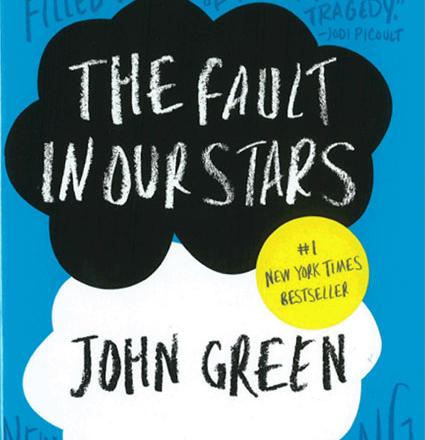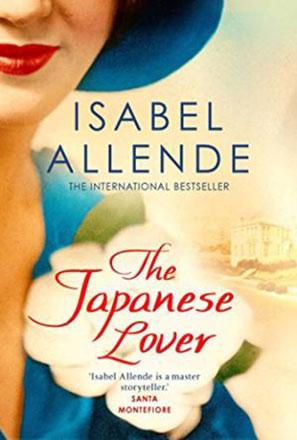You are here
Love is fun, but cancer isn’t
By Sally Bland - Oct 19,2014 - Last updated at Oct 19,2014

The Fault in Our Stars
John Green
US: Penguin, 2012
Pp. 313
“The Fault in Our Stars” is the endearing and invigorating love story of two exceptional American teenagers. Hazel and Augustus are extraordinary in terms of intelligence and imagination, but their exceptionality also has its downside: They meet in a support group for cancer survivors, somewhat euphemistically named, since each week someone is missing from the group meeting, never to return.
Hazel is the novel’s narrator, serving as the reader’s personal guide into the mental and physical world of young cancer patients or as she calls it, “The Republic of Cancervania”. Diagnosed at the age of 13 with terminal cancer, she is being treated with an experimental drug that has bought her a few years, but “I did not yet know the size of the bite”, she says. (p. 26)
Her activity level and quality of life are severely restricted by poorly functioning lungs, and an oxygen tank is her constant companion. She lives with the knowledge that she can and will suffer a fatal relapse at some undesignated time.
An avid reader, Hazel is quite analytical about her situation. At times, her insights seem amazingly philosophical, as when she says: “Cancer kids are essentially side effects of the relentless mutation that made the diversity of life on Earth possible.” (p. 49)
Her incisive and wryly humorous comments dispel many misconceptions about how cancer patients may think about themselves and their disease, and how they would like to be treated by others. When confiding that her parents are worried about her being depressed, she adds, “Whenever you read a cancer booklet or website or whatever, they always list depression among the side effects of cancer. But, in fact, depression is not a side effect of cancer. Depression is a side effect of dying.” (p. 3)
While this conclusion jolts, it also brings cancer into the fold of a long list of human ailments and the human condition as such, since we all die. However, as Hazel has discovered, most people don’t know how to deal with those approaching death, especially the young. Hazel’s parents try valiantly, but her mother’s “hovering” is sometimes too much, and her circle of friends diminishes as most of them feel so awkward about her condition that they basically disappear.
Until falling in love with Augustus, Hazel is very introverted. Mainly, she reads and re-reads “Imperial Affliction”, the only book she has found which deals with death in a credible manner. She feels guilty about the pain she is causing her parents and what they will do after she dies. Initially, for the same reason — fear of causing pain, she tries to cool the almost magical attraction she and Augustus feel for each other. Augustus is, after all, billed as cured, expected to survive her, but there are many wild cards in the deck in the Republic of Cancervania.
Augustus himself throws a number of wild cards into the deck of how to keep living when you know you are dying. His great fear is that death means oblivion, and his drive to create extraordinary experiences in the meantime shakes Hazel out of her depression.
His biggest feat is arranging a trip for them to Amsterdam, where the author of “Imperial Affliction” resides. Hazel has questions to ask him. Although their encounter with the reclusive author does not turn out as expected, the trip itself is a game-changer in terms of Hazel and Augustus learning that they have choices and that their determination to act on them means something.
“The Fault in Our Star” throws off all sentimentality and platitudes in favour of a very life-affirming, if painful, exploration of reality. Although Hazel and Augustus concur that “The world is not a wish-granting factory”, they insist on keeping their wishes and dreams, and this insistence makes life worth living. (p. 214)
One would not think that a love story about young people dying of cancer could be entertaining but John Green’s creation of these two irrepressible and charming characters, and his clever replication of how teenagers actually talk, is highly entertaining.
You will laugh, cry and, most of all, learn. The knowledge to be gained from this book is invaluable for anyone who needs to relate to a cancer patient — or confront other tragic circumstances. This is a book that will expand your humanity. “The Fault in Our Stars” is available at Readers Bookshop.
Related Articles
The Japanese LoverIsabel AllendeTranslated by Nick Caistor and Amanda HopkinsonNew York: Atria Books, 2015Pp.
In “Summer with the Enemy”, the characters are paramount. None of them are typical, much less fit into any stereotype; each opens up a different world of perception. The author, Shahla Ujayli, dedicates her book to “the Raqqa of my memory”, and her characters’ personalities, each one uniquely moulded, are her main vehicle for recreating the city as it was in the 1980s — seemingly isolated but actually with many ties to the outside world.
Ann Sawalha’s memoir tells many stories, all of them spin-offs from the 50-year-long love story which began when she met Sami Sawalha in the Detroit Hospital where she was training as a nurse. Their love led her into marriage and a new life in Jordan, and weathered the storms of cultural differences, family crises and recurring regional crises from the 1950s into the 2000s.

















